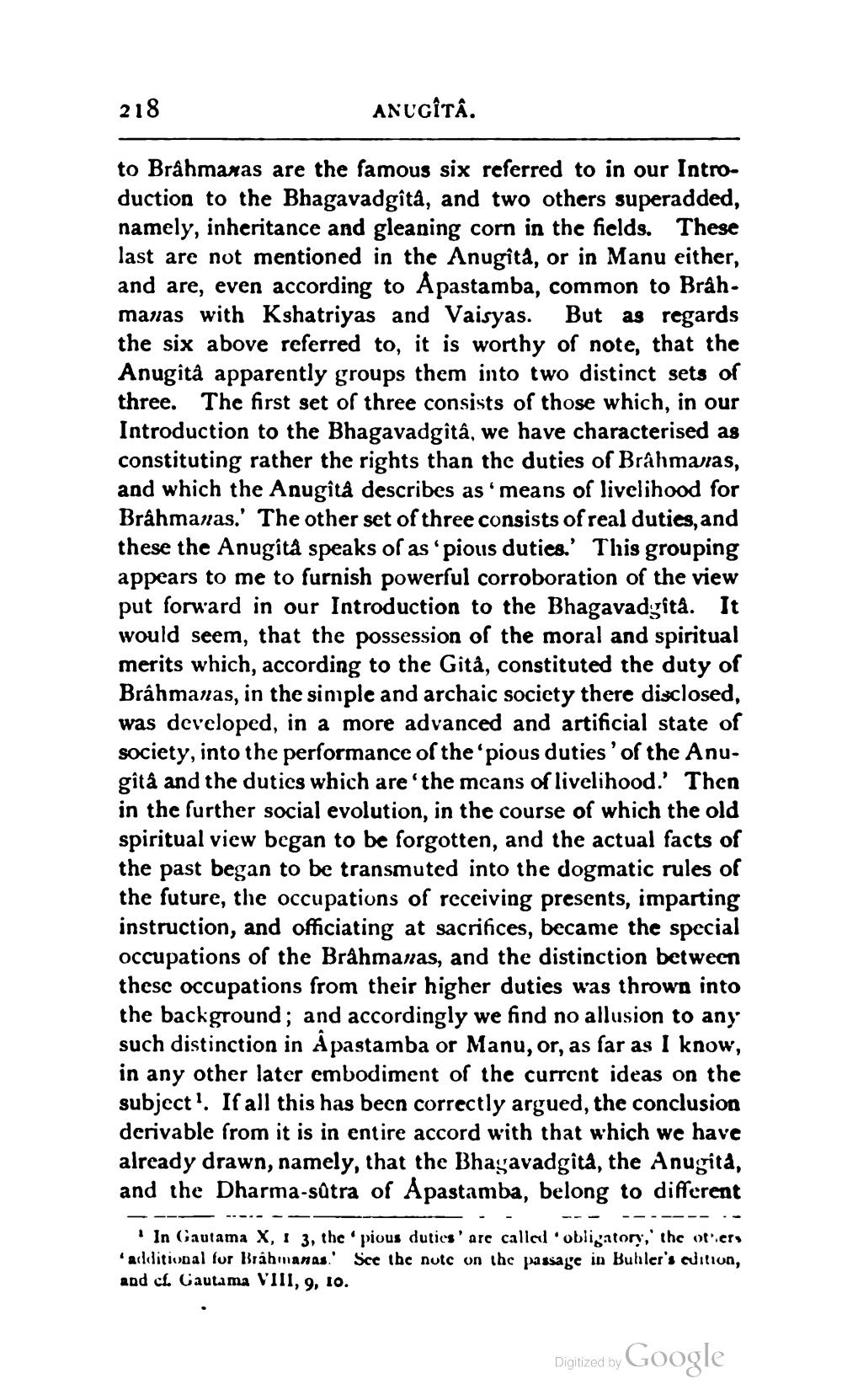________________
218
ANUGITA.
to Brahmaras are the famous six referred to in our Introduction to the Bhagavadgitá, and two others superadded, namely, inheritance and gleaning corn in the fields. These last are not mentioned in the Anugita, or in Manu either, and are, even according to Apastamba, common to Bråhmanas with Kshatriyas and Vaisyas. But as regards the six above referred to, it is worthy of note, that the Anugità apparently groups them into two distinct sets of three. The first set of three consists of those which, in our Introduction to the Bhagavadgitâ, we have characterised as constituting rather the rights than the duties of Brahmaras, and which the Anugitá describes as ' means of livelihood for Brahmanas.' The other set of three consists of real duties, and these the Anugità speaks of as 'pious duties.' This grouping appears to me to furnish powerful corroboration of the view put forward in our Introduction to the Bhagavadgita. It would seem, that the possession of the moral and spiritual merits which, according to the Gitå, constituted the duty of Brahmanas, in the simple and archaic society there disclosed, was developed, in a more advanced and artificial state of society, into the performance of the pious duties' of the Anugita and the duties which are the mcans of livelihood.' Then in the further social evolution, in the course of which the old spiritual view began to be forgotten, and the actual facts of the past began to be transmuted into the dogmatic rules of the future, the occupations of receiving presents, imparting instruction, and officiating at sacrifices, became the special occupations of the Brahmanas, and the distinction between thesc occupations from their higher duties was thrown into the background; and accordingly we find no allusion to any such distinction in Apastamba or Manu, or, as far as I know, in any other later embodiment of the current ideas on the subject'. If all this has been correctly argued, the conclusion derivable from it is in entire accord with that which we have already drawn, namely, that the Bhagavadgita, the Anugita, and the Dharma-sätra of Apastamba, belong to different
'In Gautama X, 1 3, thc pious duties' are called obligatory,' the ofers additional for Brahmanas.' See the nutc on the passage in Buhler's cuition, and cf. Gautama VIII, 9, 10.
Digitized by Google




